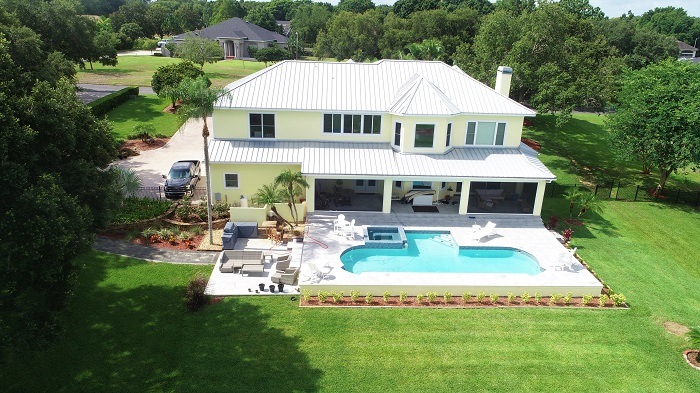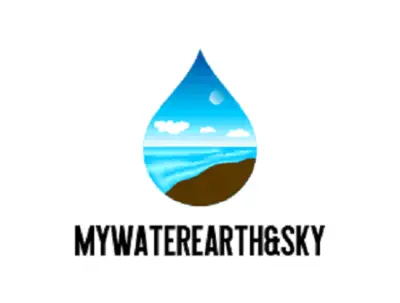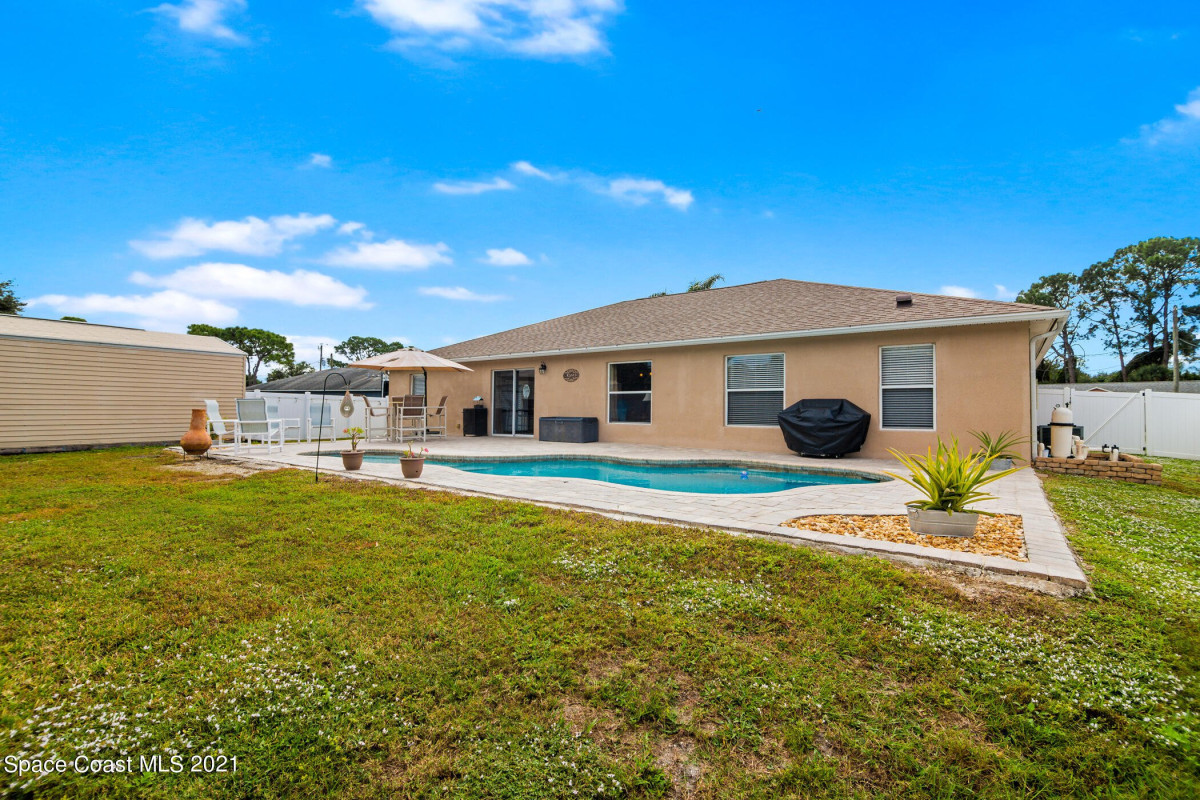In these days of COVID staying home with the family has the advantage of maybe staying a little safer and spending a little less and that is possible with a backyard swimming pool the only problem is the initial expense and the costs to run it but if you’re able to pick those expenses back up at resale is it worth it. Does a pool add value to a home?
Yes, a pool can add value to a home:
- Increased appeal to buyers
- Enhanced lifestyle and entertainment opportunities
- Potential for higher resale value
- Attractive landscaping feature
- Boosts property aesthetics
- Competitive advantage in the real estate market
- Creates a resort-like ambiance
- Adds to overall property value.
It won’t be easy since a swimming pool can make your home harder to sell. Many buyers consider it a liability rather than a luxury. Under the right circumstances, however, a pool could boost your property’s value.
Does a Pool Add Value to a Home
If you live in a neighborhood where many homeowners have swimming pools, your investment is probably solid. In fact, in those circumstances not having a pool might decrease your home’s marketability.
Factors for people buying a home swimming pool are heavily determined by your local housing market and the condition of the pool. Others are the areas of improvement that may increase money for the sale. An increase in home value will depend on a state like Florida where a pool adds value to a house’s cost.
When it comes to installing an in-ground pool, the average cost will be between $35,516 and $65,067, according to Dan DiClerico, a remodeling and home expert at HomeAdvisor.
The upfront average cost of a concrete inground pool is $40,000, while a vinyl pool is about $30,000. And a fiberglass pool is even cheaper, at approximately $28,250. according to DiClerico, there are other factors, like the size of the pool, that determine the cost of building an in-ground swimming pool.
When we say swimming pool, we mean an in-ground pool — the permanent kind that requires a large hole to be dug in your yard, not the above-ground type that resembles a big tank. “In many markets, in-ground pools are preferred and above-ground pools do not increase the value of a home,” Melissa Zavala, a broker with Broadpoint Properties in San Diego, says.
Many experts say having a well-kept pool can boost your resale value. “If you search for real estate, you will most certainly see a higher cost for homes with ready-made backyards that include pools,” says Ralph DiBugnara, founder of New York City-headquartered Home Qualified, a digital resource for homebuyers, sellers, and Realtors.
Here are some instances where a pool might increase your home’s value or make it more marketable when you sell.
- Pools are the norm for your neighborhood
- The climate allows for the pool to be used in all seasons
- The pool blends nicely with your yard but still leaves space
- Targeted homebuyers are affluent, either childless or with older kids (not starter-home types)
Pools are particularly coveted in regions where they can be used year-round. “If you live in a warmer climate like Florida or Texas, it can increase your property value and make it more likely to sell your home,” notes Tom Casey, vice president of sales at Anthony & Sylvan Pools in Doylestown, Penn. “Coastal or resort communities with vacation home rentals allow owners with swimming pool properties to command higher rental rates than nearby properties without them. And higher-end neighborhoods are also more amenable to pools that increase a home’s resale value.”
If most of the houses in your neighbors have pools but you don’t, it could decrease your home’s worth on the market. “But if you live in a typical community where some houses have pools but most do not, having a pool built will probably not have any impact on the value of your home,” cautions Robert Taylor, owner of The Real Estate Solutions Guy, a Sacramento, Calif. home-buying and flipping company.
“Your homeowner’s insurance will most likely be higher than if you did not have a pool on your property,” says Vincent J. Averaimo, a Milford, CT–based civil litigation attorney who handles property litigation. “Accidents around the pool—especially in the summertime—can be catastrophic, resulting in broken bones and even death.”
If you’re weighing whether or not to build a pool, Averaimo recommends hiring an appraiser to see if it will add value to your property. Ask to have your home appraised as is and then appraised again as if it had a pool.
“More likely than not, the appraiser will look at comparable homes that have a swimming pool and issue a fair market value based on those findings,” Averaimo says. “If the home is valued at $300,000 without a pool and $335,000 with a pool—but the cost to install the pool is $65,000—then you know the installation of that pool will not add value to the home.”
If you know these numbers, hopefully, it’s a little easier for you to weigh out the costs and benefits of adding a pool. At most, your home’s value might increase 7% percent when it comes time to sell, according to Houselogic. Still, that all depends on a variety of factors: if most of your neighbors have pools if you live in a warm climate region, and if your property is large enough to accommodate a pool.
Homes in Florida: People Factors Price in a Pool
In Florida, the presence of a pool in homes is heavily influenced by various factors:
Climate: Hot weather encourages pool ownership.
Lifestyle: Many Floridians enjoy outdoor living and recreation.
Family: Families with children often prioritize homes with pools for entertainment.
Health: Pools offer low-impact exercise, appealing to health-conscious individuals.
Socializing: Pools facilitate social gatherings and community interaction.
Maintenance: Consideration of ongoing pool upkeep costs.
Safety: Families with young children may prefer homes with secure pool enclosures.
Resale Value: Pools can increase home value, but buyers may weigh the pros and cons.
In warm climates, such as Arizona or Florida, a pool can be an attractive feature for potential buyers. If you’re in a real estate market where houses sell quickly, a pool might not be a deterrent to a prospective buyer.
- If you live in a neighborhood where many of your neighbors have swimming pools, your investment is probably solid. In fact, in those circumstances not having a pool might decrease your home’s marketability.
- In warm climates, such as Arizona or Florida, a pool can be an attractive feature for potential buyers.
- If you’re in a real estate market where houses sell quickly, a pool might not be a deterrent to a prospective buyer.
- The pool doesn’t take up your entire yard there’s still room for a swing set and a garden
- Add details like safety fences (most states require them), waterfalls, lighting, landscaping, and perhaps a spa, and you’re easily looking at totals approaching $100,000.
- Gunite is the most popular in-ground pool. Gunite is a mixture of cement and sand, which can be poured into almost any shape. It has replaced concrete pools as the sought-after standard.
Add all that up and you’ve got a large price tag to try to recoup when you’re ready to sell your home. It won’t be easy since a swimming pool can actually make your home harder to sell.
Many buyers consider it a liability rather than a luxury. Under the right circumstances, however, a pool could boost your home’s value by as much as 7%, Houselogic estimates.
Does an In-ground Pool Add Neighborhood House Value
Add all that up and you’ve got a large price tag to try to recoup when you’re ready to sell your home. It won’t be easy since a swimming pool can make your home harder to sell. Many buyers consider it a liability rather than a luxury.

An in-ground pool can positively impact neighborhood house value due to several factors:
- Enhanced curb appeal and aesthetics.
- Increased desirability, especially in warm climates.
- The attraction of buyers seeking luxury amenities.
- Potential for higher resale value.
- Improved lifestyle and leisure opportunities.
- Enhanced neighborhood prestige and status.
- Competitive advantage in the real estate market.
- Positive perception of the neighborhood’s overall quality.
While above-ground pools work just as well for swimming in, they do not add value to a home. Many real estate agents will tell you that they even devalue a home. A concrete in-ground pool, however, can add 7-8 percent value to a home to the right buyer.
Real estate experts estimate that an average 14×28-foot inground concrete pool potentially adds 5 to 8 percent to the real estate value of your home. If your property is worth $400,000, you’ll realize a boost to the value of your property of about $20,000 to $32,000.
But the average cost of installing a 14×28-foot inground concrete pool is about $50,000, which means you’ll only recoup a portion of your original pool investment.
Fences can help keep animals like deer out of the water, but they’re also required by law and mandatory for safety reasons. Fence height is also mandated state-by-state, but most governments require a 4-foot fence around the pool. Check with your local government to see how high your fence needs to be.
Fence pricing depends on the size of the area and the materials you use. Black aluminum is a popular choice, but if you’re looking to save some money, opt for a post and rail with a wire in-between says Jodie Freeland-Black River Landscape Management in Randolph, NJ.
In the end, if your heart is set on adding a pool, don’t look at it as an investment in your home, but in your lifestyle. A backyard swimming pool can add to your family’s enjoyment of your home, and you can’t put a price on that.
Do Above-Ground Pools Add Value or Liability to a Home
Adding an above-ground swimming pool to your home does not add any official real estate value to your home and property. Adding permanent decking, outdoor lighting, patios and landscaping to the above-ground swimming pool area can add some home value to the home though.
Anything added to a property that is not considered “permanent” will not add any value. This can be unfortunate as there are different types of above-grounds, and some are quite expensive.
;Resize=(920,575))
Above-ground pools can have varying impacts on home value:
Value:
- An affordable option for homeowners seeking a pool.
- Appeal to buyers looking for budget-friendly amenities.
- Can enhance outdoor living and entertainment space.
- May increase property value in areas with high demand for pools.
Liability:
- Maintenance concerns may deter potential buyers.
- Perception of lower quality compared to in-ground pools.
- Potential safety hazards, especially for families with children.
- Removal costs if buyers prefer not to keep the pool.
- Limited lifespan compared to in-ground pools, affecting long-term value.
Overall, the impact depends on buyer preferences, maintenance, and the pool’s condition.
Above-ground pools arrive in a kit form and take anywhere from 1 to 3 days to install. They are at the lower end of the cost spectrum compared to in-ground pools. You can buy a kit and pay a professional to install it, or even set it up yourself if you’re up to the task if you are planning to stay in your home for a while.
You can add features around the above-ground pool but in the end, the new owners don’t have the same taste and actually could prevent them from making a sale with you. A backyard pool requires pool maintenance, chemical cost, and extra electrical budgeted for the new homeowners, without adding much to the home’s value or the property value.
Conclusion:

References:
HGTV-Does a Pool Add to the Value of Your Home
Ramsey-Does a Swimming Pool Increase or Decrease Your Home’s Value?
FAQ’s
- Do all types of pools add the same value to a home? No, the type of pool can significantly affect its impact on home value. In-ground pools generally add more value compared to above-ground pools due to their durability, aesthetics, and perceived luxury.
- Are pools attractive to all homebuyers? No, while pools may be appealing to some homebuyers, others may view them as liabilities due to maintenance costs, safety concerns, or personal preferences. It ultimately depends on the individual buyer’s needs and preferences.
- What factors should I consider before installing a pool to increase my home’s value? Factors to consider include the local climate, neighborhood preferences, potential return on investment, ongoing maintenance costs, safety measures, and the overall impact on your property’s aesthetics and functionality.
- Do pools require additional insurance coverage? Yes, pools typically require additional liability insurance coverage to protect against accidents or injuries that may occur on the property. It’s essential to consult with your insurance provider to ensure adequate coverage.
- Can a pool decrease home value? In some cases, pools may decrease home value, particularly if they are poorly maintained, outdated, or if they consume a significant portion of the backyard space, limiting other outdoor amenities.
- What should I do if I’m selling a home with a pool? To maximize the pool’s impact on home value, ensure it is well-maintained, properly cleaned, and visually appealing. Consider staging the pool area with furniture and accessories to showcase its potential for outdoor living and entertainment.
- How can I address potential buyer concerns about pools? Be transparent about the pool’s condition, maintenance history, and any safety features in place. Provide information about the pool’s ongoing maintenance requirements and associated costs to help buyers make informed decisions.
